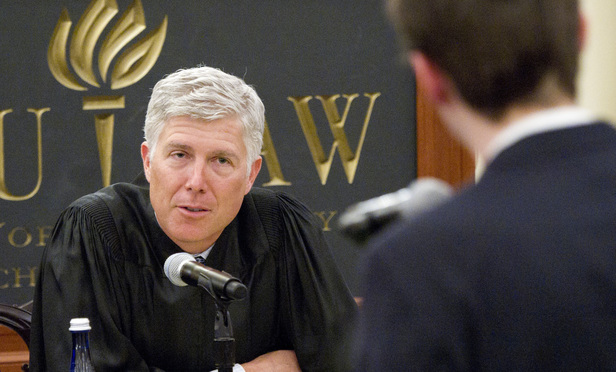Related Articles:
Gorsuch, referring to both Chevron and a 2005 sequel, National Cable & Telecommunications Association v. Brand X Internet Services, said, “Chevron and Brand X permit executive bureaucracies to swallow huge amounts of core judicial and legislative power and concentrate federal power in a way that seems more than a little difficult to square with the Constitution of the framers’ design. Maybe the time has come to face the behemoth.”
His pronouncement came in an immigration case Guttierez-Brizuela v. Lynch, but it expresses sentiments that will resonate among business advocates alarmed by the growth of the administrative state. The question in the case was whether a Board of Immigration Appeals’ interpretation of the meaning of an immigration law, that ran contrary to the interpretation made by the courts, could be applied retroactively.
By allowing the executive branch in effect to override judicial interpretations of laws, Gorsuch said, Chevron turns administrative agencies into a “super court of appeals. If that doesn’t qualify as an unconstitutional revision of a judicial declaration of the law by a political branch, I confess I begin to wonder whether we’ve forgotten what might.” He added, “When the political branches disagree with a judicial interpretation of existing law, the Constitution prescribes the appropriate remedial process. It’s called legislation.”
If the stability of judicial rulings is weakened, Gorsuch said, the public would need “an army of perfumed lawyers and lobbyists” to guess whether Chevron deference will be applied to change court interpretations.
If the Chevron doctrine was overturned, Gorsuch said, courts would continue to rule on what the law is, giving the public “some assurance that the rug will not be pulled from under them tomorrow, the next day, or after the next election” through changeable agency interpretations.





